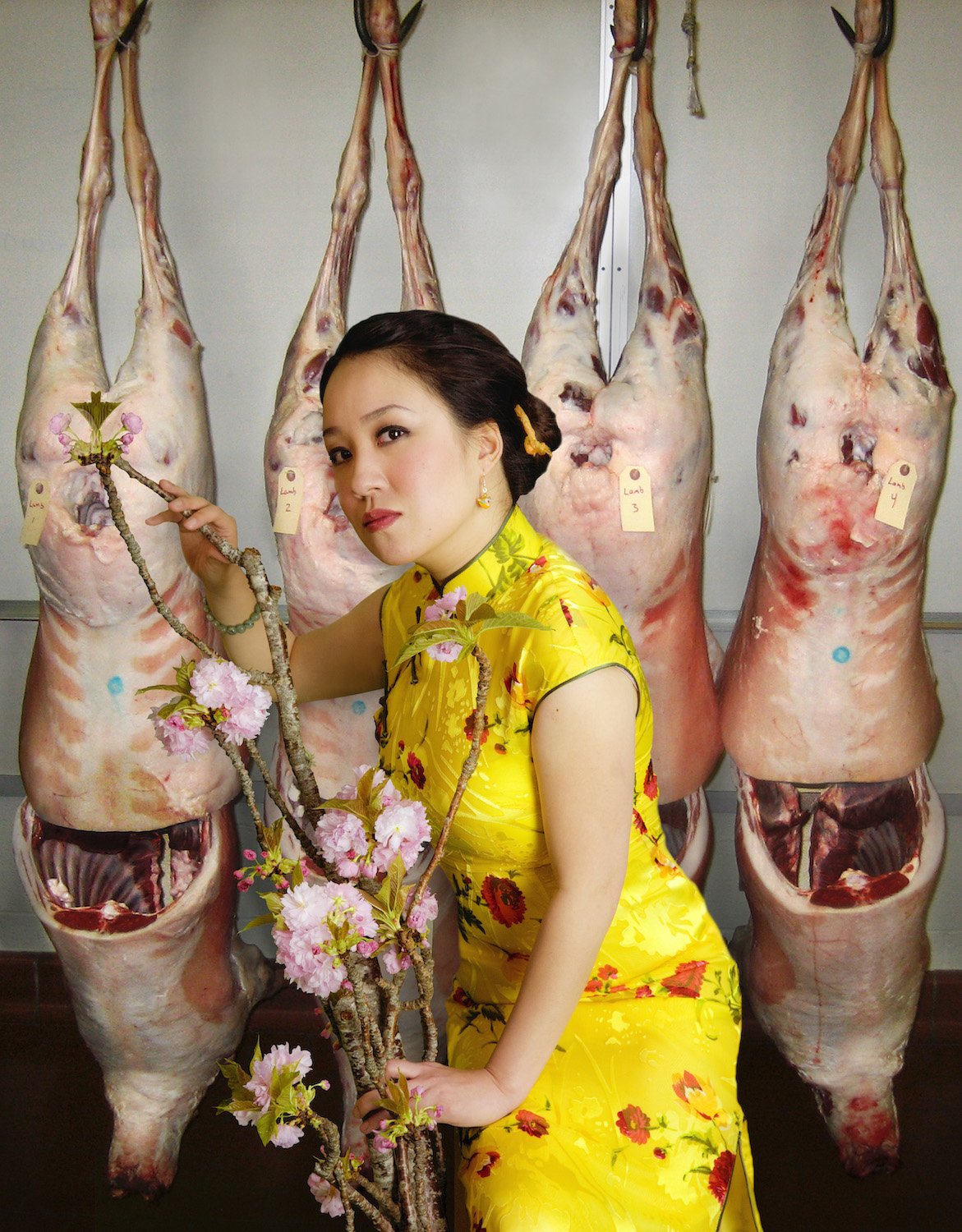mei Xian qiu
"Cherry Blossoms"
"Grand Canyon"
"Hollywoodland"
"Untitled"
"Untitled"
"Bird Cage"
"Eve and Lilith"
"Lovers"
"Nymph of the River Luo Spring"
"Nymph of the River Luo Summer"
Mei Xian Qiu is a Los Angeles based artist. She was born in the town of Pekalongan, on the island of Java, Indonesia, to a third generation Chinese minority family. At birth, she was given various names in preparation for societal collapse and variant potential futures, a Chinese name, an American name and an Indonesian name given by her parents, as well as a Catholic name by the local priest. In the aftermath of the Chinese and Communist genocide, the family immigrated to the United States. She was moved back and forth several times between the two countries during her childhood–her parents initial reaction to what they perceived as the amorality of life in the West countered with the uncertainty of life in Java. Partially as a result of a growing sense of restlessness, her father joined the U.S. Air force and the family lived across the country, sometimes staying in one place for just a month at a time. She has also been based in Europe, China, and Indonesia as an adult.
“Let a Thousand Flowers Bloom,” a series of photographs portraying a Chinese takeover of the United States, is a popular partial Western misquotation of Mao Zedong’s “Let a Hundred Flowers Blossom, Let a Hundred Schools of Thought Contend.” Taken from classical Chinese poetry, Mao used this slogan to proclaim a great society where arts, academia, and “a hundred schools of thought contend.” As a result, artists and academics came out of hiding and there was a brief flowering of culture.In the photographs, hidden political dangers are suggested and must be addressed urgently, but are put aside momentarily, subsumed to the romance of “the beautiful idea.” The models for the imagery are Pan Asian American artists, and academics specializing in Chinese culture, the very group at risk in a Hundred Flowers Movement. The costumes are discarded U.S. military uniforms, cheongsams constructed for the photographs, and Chinese mock ups taken from a Beijing photography studio, specializing in getups for foreign tourists to re-enact Cultural Revolution Propaganda imagery. Growing up in Java as a third generation Chinese Diasporic minority during a time when being Chinese was unlawful, Qiu reconstructed the unknown, fantastical notions of culture, self invented and—by dissecting essential archetypes, revelatory and iconic. This type of flexible self view and easy piercings of notions of the impermeable interior self, are in keeping with the new contemporary landscape of commonplace transience and a growing global monoculture. After her family immigrated to the U.S. in response to genocide, Qiu visited China five times only to learn it was eagerly shedding its own past culture in order to embrace modernity. The photographs uses familiar symbolism and historical dystopianism, but looks squarely to the future. Never forgetful of the past, this body of work engages the constitution of the future, affirmatively critical, specifically with respect to globalism, the identity of the self and self view, the social landscape, post-colonialism, and that of the larger national body politic.
~ Mei Xian Qiu











